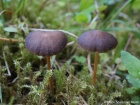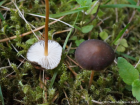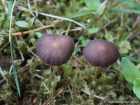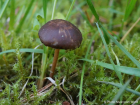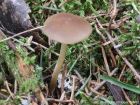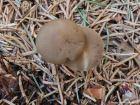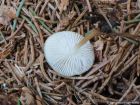Cap is brownish-grey, initially convex and becoming flattened with age. The surface is smooth. The flesh is white and thin, though it can also appear off-white or brownish-black. Gills crowded, white, and somewhat sinuate. Stem thin, elongated, lighter at the top and darker at the bottom. Woolly strands are visible at the base. Spore print white.
Microscopic Features: The spores are elongated-ellipsoidal, and the cystids take on an elongated-fusiform shape.
Similar species include Strobilurus stephanocystis and Strobilurus tenacellus which favour pine cones.
Many mushrooms are poisonous, and some can be lethally toxic. Distinguishing between edible and poisonous mushrooms can be very challenging. Therefore, we strongly advise against consuming wild mushrooms. This website does not contain any information about the edibility or toxicity of mushrooms.
Although efforts have been made to ensure accuracy on this website, the information may contain errors and omissions. Therefore, all content provided is for educational and informational purposes only and should not be relied upon or used as a basis for consuming any plants or mushrooms.
External links are provided for reference only. We do not endorse or take responsibility for the content, advice, or products found on these sites or in any advertisements shown on this website.
